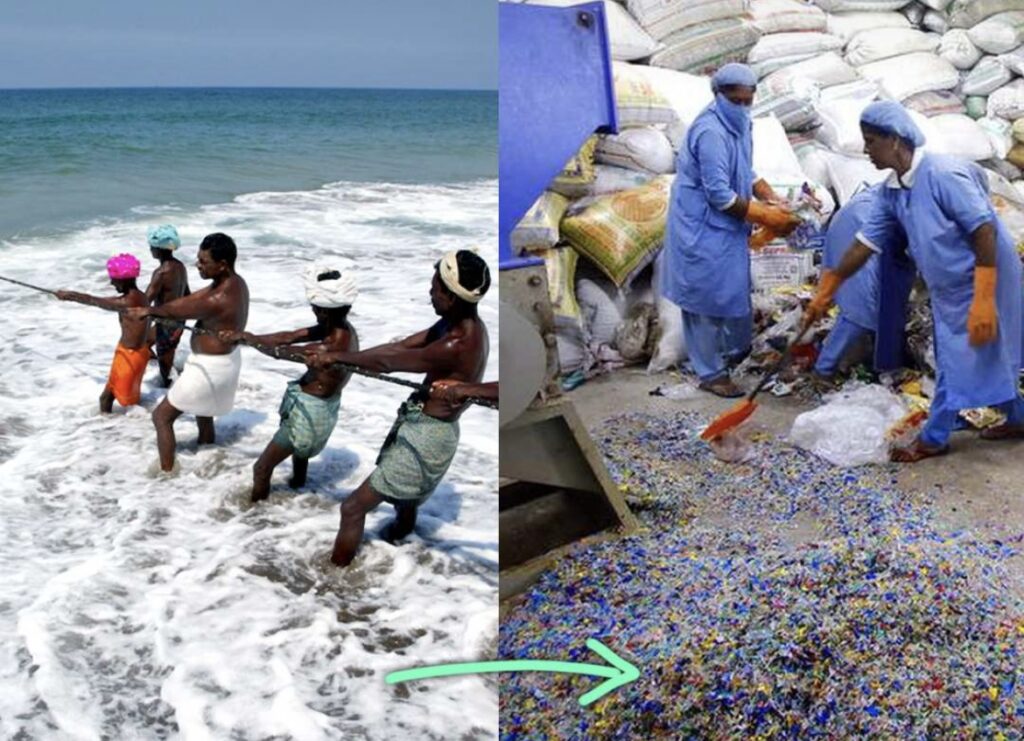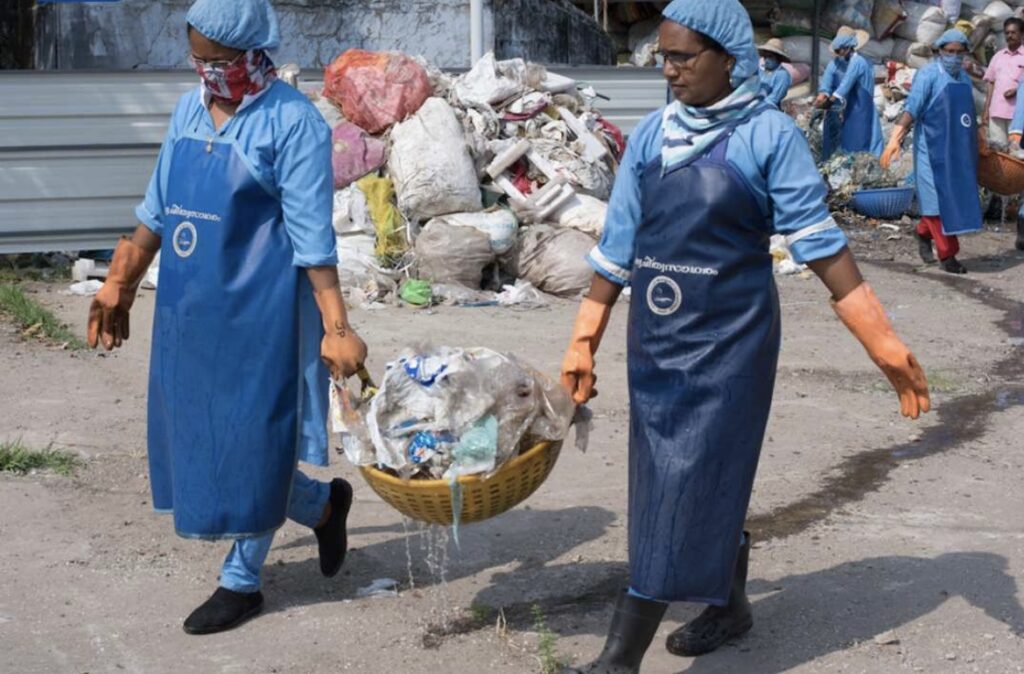In an inspiring display of environmental responsibility and innovation, fishermen from Kollam, Kerala, have taken a groundbreaking step toward tackling marine pollution—by turning sea plastic waste into roads. This unique initiative not only addresses the critical issue of oceanic plastic pollution but also supports infrastructure development in a sustainable and eco-friendly manner.

The process begins when fishermen collect plastic waste from the sea while fishing. They use nylon bags to gather floating plastic debris, which is often harmful to marine life. Upon reaching the shore, the collected waste is handed over to a group of local women, who play a crucial role in the next phase of the project. These women carefully sort and wash the plastic, preparing it for recycling.
Once cleaned, the plastic is shredded into smaller pieces. These plastic fragments are then mixed with asphalt to form a composite material that is used for road construction. This blend not only offers a practical use for otherwise harmful waste but also enhances the durability of roads, making them more resistant to water and wear.

The initiative has seen tremendous success, with over 135 kilometres of roads already constructed using this recycled plastic blend. According to the latest figures, the community has collected a staggering 80,000 kilograms of plastic waste from the sea—plastic that would have otherwise continued to harm marine ecosystems.
This innovative approach is more than just a waste management strategy; it’s a community-driven environmental movement. It involves the active participation of fishermen, local women, and municipal authorities, all working together to clean up the seas and improve road infrastructure. Beyond environmental benefits, the initiative also provides employment opportunities, particularly for women who are engaged in sorting and cleaning the plastic waste.

The Kollam model serves as a shining example of how grassroots efforts can contribute significantly to global challenges like marine pollution and climate change. By combining traditional occupations with modern recycling techniques, this initiative is paving the way for a cleaner, greener future—literally.
As the world grapples with the plastic crisis, Kerala’s fishermen offer a blueprint of hope and resilience. Their work not only cleans the ocean but also redefines waste as a resource, showing that sustainability and progress can go hand in hand.
